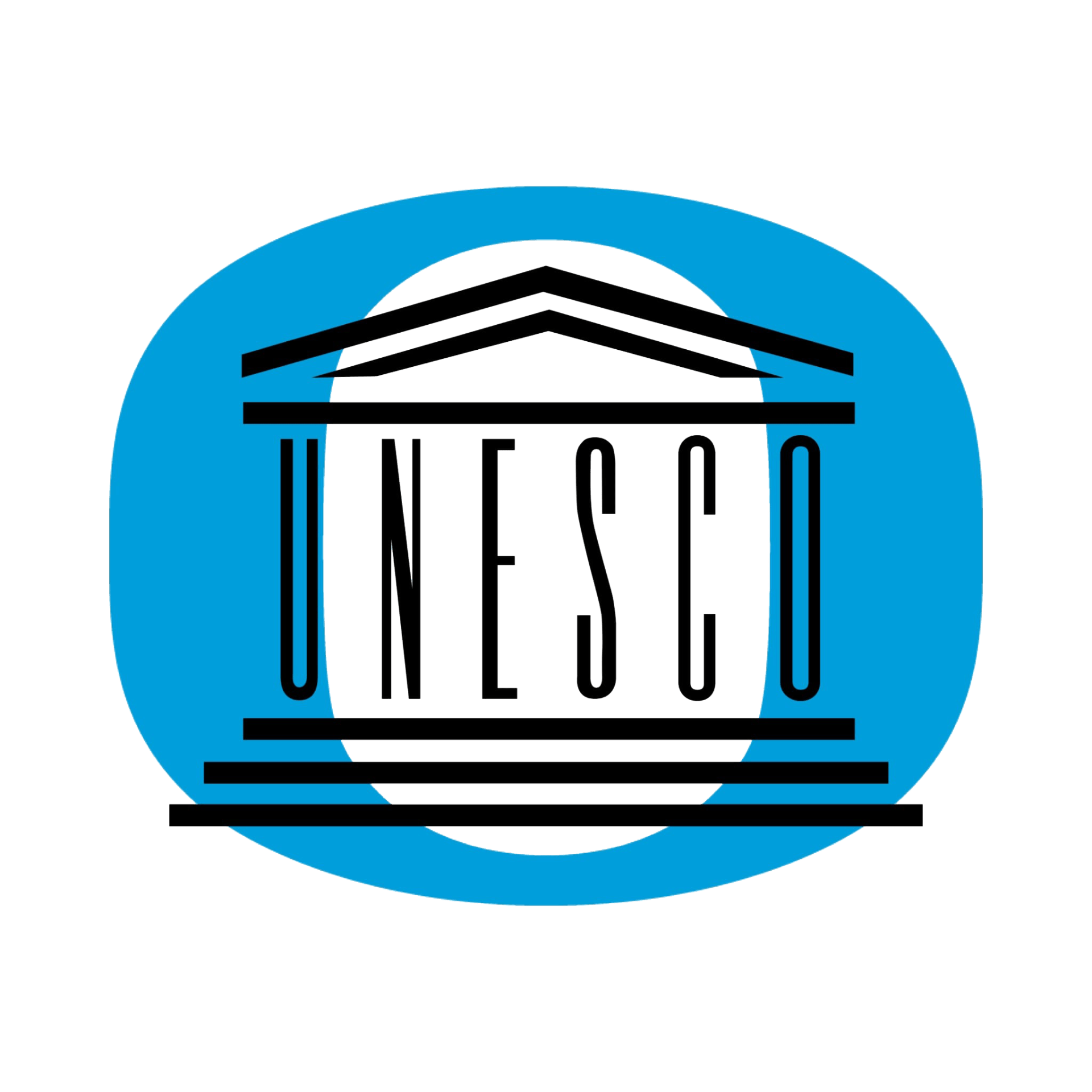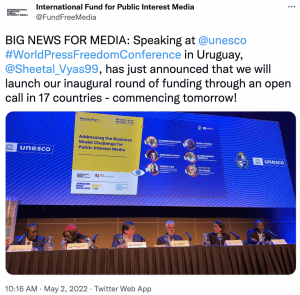The venture was announced on World Press Freedom Day, explicitly linking media freedom and media viability
by Mac Larsen
In honor of World Press Freedom Day 2022, the International Fund for Public Interest Media (IFPIM) announced the first round of funding for public interest media proposals in 17 countries.
The purpose of their inaugural round of funding is to “dramatically increase the amount of resources available to support trustworthy, ethical, fact-based journalism, and enable the media to work for democracy,” according to IFPIM’s website.
Proposals for the global grants will award between $35,000 and $350,000 to organizations in Ghana, Kenya, Sierra Leone, Senegal, Niger, South Africa, Tunisia, Lebanon, Mexico, Columbia, Brazil, Afghanistan, Malaysia, Nepal, Philippines, Georgia, and Ukraine.
Speaking during a panel at the World Press Freedom Conference being hosted in Uruguay this week, IFPIM Founding Executive Director Sheetal Yvas saved her news for the end of the discussion, highlighting the importance of IFPIM’s open call for funding proposals.
Yvas stated the significance of the fund’s grant proposition wasn’t just that it signaled a successful way forward for the young non-profit, but that IFPIM’s program would be drawing from investment sources that were completely new. While many sources of revenue for public interest media shift money away from other sectors, this open call’s funding is directly raised by those who support the vision of global access to public interest media.
The session featured further insights from His Excellency Mohamed Rahman Swaray, the Minister of Communication and Information of Sierra Leone, and Jaime Abello-Banfi, CEO and Co-Founder of The Gabo Foundation.
Abello-Banfi spoke of the struggles supporting public interest in Central America, while Minister Swaray outlined how they’ve successfully fostered public interest media in their country such as Sierra Leone News Agency (SLENA).
The wider conversation focused on how public interest media organizations can sustain their vital work of holding truth to power in environments where , the media is often seen as a mouthpiece for the government.
Reliance on government funding, including advertising, as well as public perceptions of proximity and friendliness to those in power, can all impact media viability and credibility. Reduced financial ties to the government can be one way to promote media freedom, financial viability, and help audiences to more effectively see independent journalism as a vehicle for promoting the public good.
These goals are at the heart of the IFPIM’s new fund. IFPIM hope that through grant-based funding as well as other forms of subsidies, public interest media can support its work without relying on government advertising revenue, or advertising from big business – entities that may also pressure media outlets for favorable coverage.
Grants are just one potential component that can help media outlets to diversify their revenue mix.
In later panel conversations, other tools that were suggested to improve media business viability included tax incentives, focusing resources on news deserts, grants for media organizations, and modeling recruiting practices off of institutions like Report for America.
Many of these initiatives can already been seen in different countries around the world. By learning from these examples, it’s hoped that this will foster a new age of media viability that can be translated – and successfully applied – in other nations, creating stronger and more robust global public interest media companies in the process.
“Future calls are likely to take a different form” the IFPIM shared on Twitter, noting that “providing we are successful in our resource mobilisation efforts” these efforts “will cover a much wider geographic and thematic range.”
“What is essential on this #WorldPressFreedomDay is for us all to affirm the value of news media as a public good, essential to us all,” they added.

